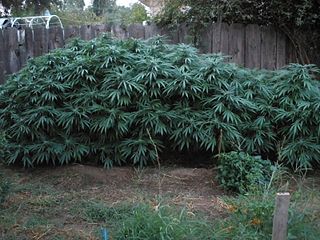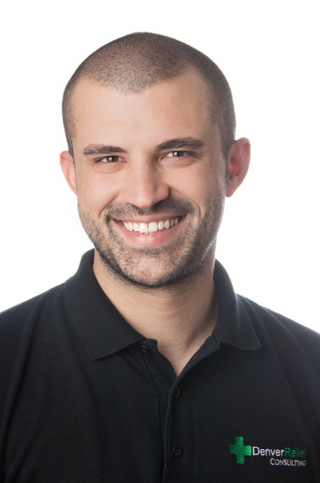
Cannabis indica is an annual plant species in the family Cannabaceae indigenous to the Hindu Kush mountains of Southern Asia which produces large amounts of tetrahydrocannabinol (THC) and tetrahydrocannabivarin (THCV), with levels up to 53.7% of total cannabinoids, from China, India, Nepal, Thailand, Afghanistan, and Pakistan, as well as southern and western Africa, and is cultivated for purposes including hashish in India. The high concentrations of THC or THCV provide euphoric effects making it popular for use both as a recreational drug, alternative medicine, and a clinical research drug. And THCV for its platform for treating life-threatening diseases.

In the United States, the non-medical use of cannabis is legalized in 23 states and decriminalized in 8 states, as of May 2023. Decriminalization refers to a policy of reduced penalties for cannabis offenses, typically involving a civil penalty for possessing small amounts, instead of criminal prosecution or the threat of arrest. In jurisdictions without penalty the policy is referred to as legalization, although the term decriminalization is sometimes used for this purpose as well.

Danny Danko is a writer, marijuana enthusiast and former Senior Cultivation Editor of High Times magazine.

Malawian cannabis, particularly the strain known as Malawi Gold, is internationally renowned as one of the finest sativa strains from Africa. According to a World Bank report it is among "the best and finest" marijuana strains in the world, generally regarded as one of the most potent psychoactive pure African sativas. The popularity of this variety has led to such a profound increase in marijuana tourism and economic profit in Malawi that Malawi Gold is listed as one of the three "Big C's" in Malawian exports: chambo, chombe (tea), and chamba (cannabis).

Leafly is a website focused on cannabis use and education. The company says it has more than 120 million annual visitors and over 10 million monthly active users. Leafly provides a wide range of information on cannabis, including 1.5 million consumer product reviews, more than 9,000 cannabis articles and resources, and over 5,000 verified strains in its database. Leafly additionally provides 4,500+ retailers and 8,000+ cannabis brands with e-commerce tools such as digital storefronts, embedded menus, point-of-sale integrations, targeted advertising, and more. The company is headquartered in Seattle, Washington and from 2012 to 2019 was owned by Privateer Holdings, a private equity firm focused on the emerging legal cannabis industry. Leafly is now a publicly traded company with 160 employees.

The legal history of cannabis in the United States began with state-level prohibition in the early 20th century, with the first major federal limitations occurring in 1937. Starting with Oregon in 1973, individual states began to liberalize cannabis laws through decriminalization. In 1996, California became the first state to legalize medical cannabis, sparking a trend that spread to a majority of states by 2016. In 2012, Washington and Colorado became the first states to legalize cannabis for recreational use.

Cannabis in Massachusetts is legal for medical and recreational use. It also relates to the legal and cultural events surrounding the use of cannabis. A century after becoming the first U.S. state to criminalize recreational cannabis, Massachusetts voters elected to legalize it in 2016.

Privateer Holdings is an American private equity company that invests in the legal cannabis industry. Privateer Holdings is headquartered in Seattle, Washington and employs more than 350 people in seven countries. The company is building a diversified portfolio of cannabis brands. As of November 2016, the company has raised $122 million. Privateer Holdings secured the first institutional investor to enter the cannabis industry, Founders Fund. In 2019 Privateer Holdings was merged with Tilray.

Kayvan Khalatbari is an Iranian-American entrepreneur; he was a mayoral candidate in Denver, Colorado, in 2019.

Wikileaf Technologies is a Seattle business providing data services to the cannabis industry and information to consumers. The company provides price indexes and cannabis strain reviews and information.

Cannabis dispensaries in the United States or marijuana dispensaries are a local government regulated physical location, typically inside a retail storefront or office building, in which a person can purchase cannabis and cannabis related items for medical or recreational use. First modeled in Amsterdam in the late 1970s where they were innocently called coffee shops, it would take the Americans more than a generation to successfully duplicate the idea of a retail cannabis storefront. Unlike in the Dutch coffee shops, today dispensary customers are prevented from consuming cannabis on the site of a regulated dispensary in all known markets.

The Adult Use of Marijuana Act (AUMA) was a 2016 voter initiative to legalize cannabis in California. The full name is the Control, Regulate and Tax Adult Use of Marijuana Act. The initiative passed with 57% voter approval and became law on November 9, 2016, leading to recreational cannabis sales in California by January 2018.
The cannabis industry is composed of legal cultivators and producers, consumers, independent industrial standards bodies, ancillary products and services, regulators and researchers concerning cannabis and its industrial derivative, hemp. The cannabis industry has been inhibited by regulatory restrictions for most of recent history, but the legal market has emerged rapidly as more governments legalize medical and adult use. Uruguay became the first country to legalize recreational marijuana through legislation in December, 2013. Canada became the first country to legalize private sales of recreational marijuana with Bill C-45 in 2018.
Cannabis product testing is a form of product testing analyzes the quality of cannabis extracts, edibles, and THC and CBD levels in an emergent consumer market eager to sell adult use products. Analytical chemistry and microbiology laboratories are important entities in consumer protection. These labs not only determine the condition and viability of cannabinoids, water content, heavy metals, pesticides, terpenes, yeast, but also the presence of mold, mycotoxins, and solvents. These laboratories emerged when advocates of cannabis testing raised concerns about potential contaminants.
To frame the lists below, here is an overview of women in the industry since as early as 2012 in the U.S. Cannabis has a long legal history in the U.S. from criminalization to liberalization given the emerging markets of legalizing medicinal and recreational use of cannabis. Women and issues relating to gender bias or sexism vs. gender equality and inclusion have played a significant role in various sectors of emerging markets, particularly in Colorado, California, and Oregon.

A budtender is a title of a staff member who works within a dispensary or store where medical or recreational cannabis is sold. Their job is to offer suggestions to customers, answer questions, handle products and showcase products being sold.
Tantalus Labs was a Canadian Licensed Producer of cannabis. Based out of British Columbia and established in 2012 by Dan Sutton, Tantalus Labs cultivated in their cannabis greenhouse, SunLab which was the first purpose-built cannabis greenhouse in North America. In June 2023, Tantalus Labs announced it would cease operations and began laying off the majority of its employees.
Cresco Labs, Inc. is a publicly traded, vertically integrated cannabis and medical marijuana company based in Chicago, Illinois, with current retail operations in nine states where marijuana has been legalized for medical use. The company's stock trades on the Canadian Securities Exchange under the ticker symbol CL, and in over-the-counter markets in the United States with the ticker symbol CRLBF.













